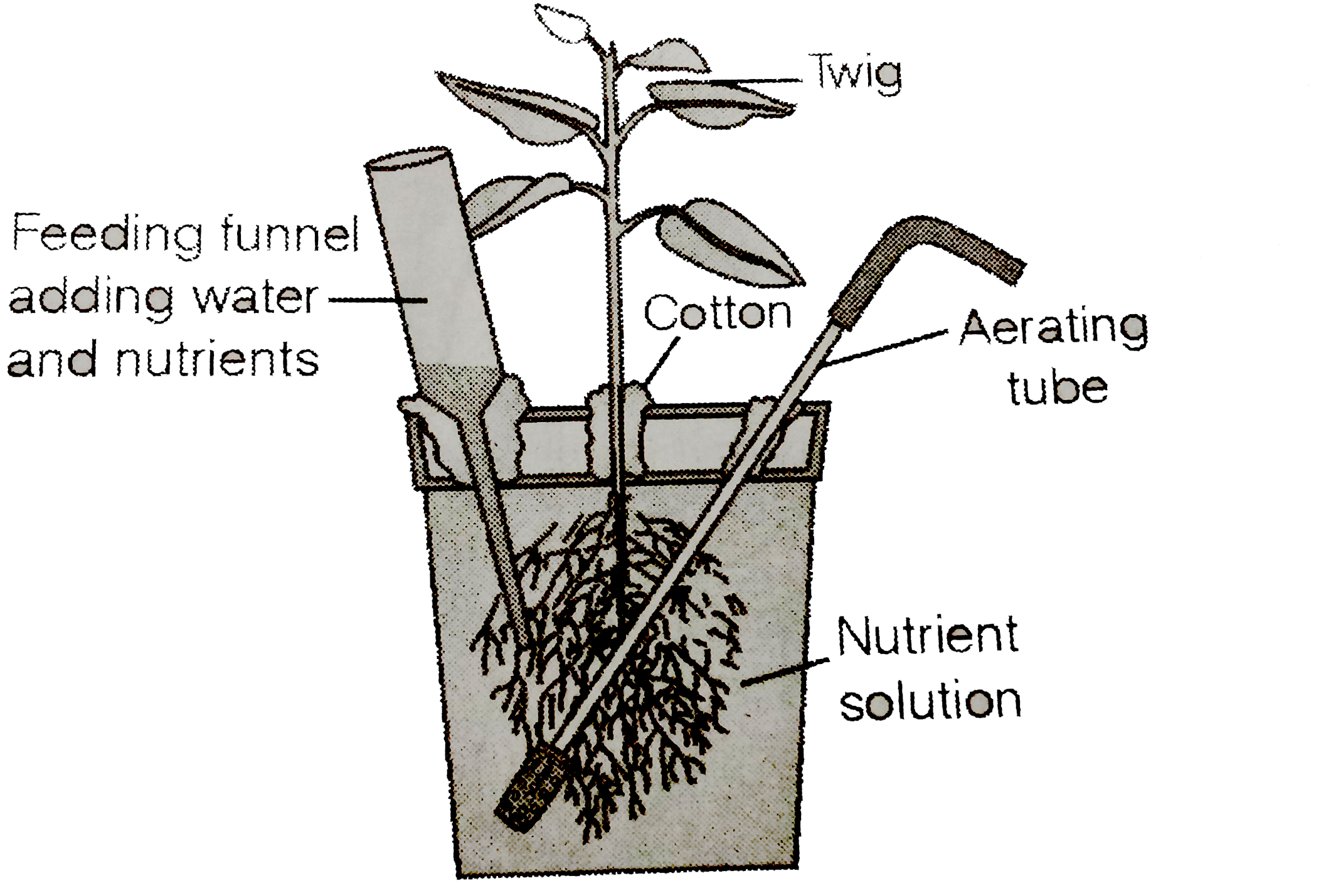Name three plants for which hydroponics can be employed for their commercial production
Step-by-Step Solution:
1. Understanding Hydroponics: Hydroponics is a method of growing plants without soil, using nutrient-rich water instead. This technique allows for efficient growth and can be used for various types of plants.
2. Identifying Suitable Plants: Some plants are particularly well-suited for hydroponic growth due to their growth habits and nutrient requirements.
3. Listing Examples: Three common plants that can be commercially produced using hydroponics are:
- Lettuce: This leafy green is often grown hydroponically because it grows quickly and has a high market demand.
- Tomato: Tomatoes thrive in hydroponic systems and can produce high yields in a controlled environment.
- Cucumber: Cucumbers are another popular choice for hydroponic cultivation, as they grow well in nutrient solutions.
4. Additional Examples: While the question asks for three plants, it is worth noting that other plants like strawberries and herbs (e.g., basil) can also be successfully grown using hydroponics.
Final Answer: The three plants for which hydroponics can be employed for their commercial production are lettuce, tomato, and cucumber.
---
- Lettuce: This leafy green is often grown hydroponically because it grows quickly and has a high market demand.
- Tomato: Tomatoes thrive in hydroponic systems and can produce high yields in a controlled environment.
- Cucumber: Cucumbers are another popular choice for hydroponic cultivation, as they grow well in nutrient solutions.
Topper's Solved these Questions
- BOOK - ICSECHAPTER - MINERAL NUTRITION EXERCISE - TEST YOUR PROGRESS (SHORT/LONG ANSWER TYPE QUESTIONS)25videos
MINERAL NUTRITION
- BOOK - ICSECHAPTER - MINERAL NUTRITION EXERCISE - TEST YOUR PROGRESS (HIGHER ORDER THINKING SKILLS QUESTIONS)8videos
MINERAL NUTRITION
- BOOK - ICSECHAPTER - MINERAL NUTRITION EXERCISE - TEST YOUR PROGRESS (State whether the following statements are true or false)13videos
MINERAL NUTRITION
- BOOK - ICSECHAPTER - LOCOMOTIONA ND MOVEMENT EXERCISE - NCERT EXERCISES WITH ANSWER (DIFFERENTIATE BETWEEN)8videos
LOCOMOTIONA ND MOVEMENT
- BOOK - ICSECHAPTER - MORPHOLOGY AND ANATOMY OF DIFFERENT SYSTEM OF COCKROACH EXERCISE - Long Answer type Questions6videos
MORPHOLOGY AND ANATOMY OF DIFFERENT SYSTEM OF COCKROACH
Similar Questions
Carefully observed the following figure

(a) Name the technique shown in the figure and the scientist who demonstrated this technique for the first time.
(b) Name atleast three plants for which this technique can be employed for their commercial production.
(c) What is the significance of aerating tube and feeding funnel in this setup ?View SolutionThe microbe used for the commercial production of ethanol is
View Solution
Knowledge Check
- Question 1 - Select One
The technique of hydroponics is bieng employed for the commercial production of vegetables like
AtomatoBcucumberClettuceDall of these - Question 2 - Select One
Name the plant in which cystolith is found :
AFicusBMaizeCMangoDTeak - Question 3 - Select One
Assertion: The technique of growing plants in a nutrient solution is known as hydroponics
Reason: Hydroponics is used for commercial production of vegetables such as tomato, seedless cucumber and lettuce.AIf both assertio and reason are true and reason is the correct explanation of assertionBif both assertion and reason are true but reason is not the correct explanation of assertionCif assertion is true but reason is falseDif both assertion and reason are false
Coir is the commercial product of coconut's
View SolutionRead the following statements and choose the correct one from the options given below.
(i) Hydroponics is the practice of growing plants in nutrient - enriched water , without soil.
(ii) Hydroponics has been successfully employed as a technique for the commercial production of vegetables such as tomato.
(iii) Hydroponics methods require purified water and non - mineral nutrient salts.
(iv) The nutrient solutions should not be aerated to obtain optimum growth.
(a) (i) and (ii) only
(b) (i) and (ii) only
(c) (i) , (iii) and (iv) only
(d) (i) , (ii) , (iii) and (iv)View SolutionAn alga which can be employed as food for human being is
View SolutionAn alga which can be employed as food for human being is
View SolutionHydroponics has been successfully employed as technique for commercial production of all except –
View Solution

